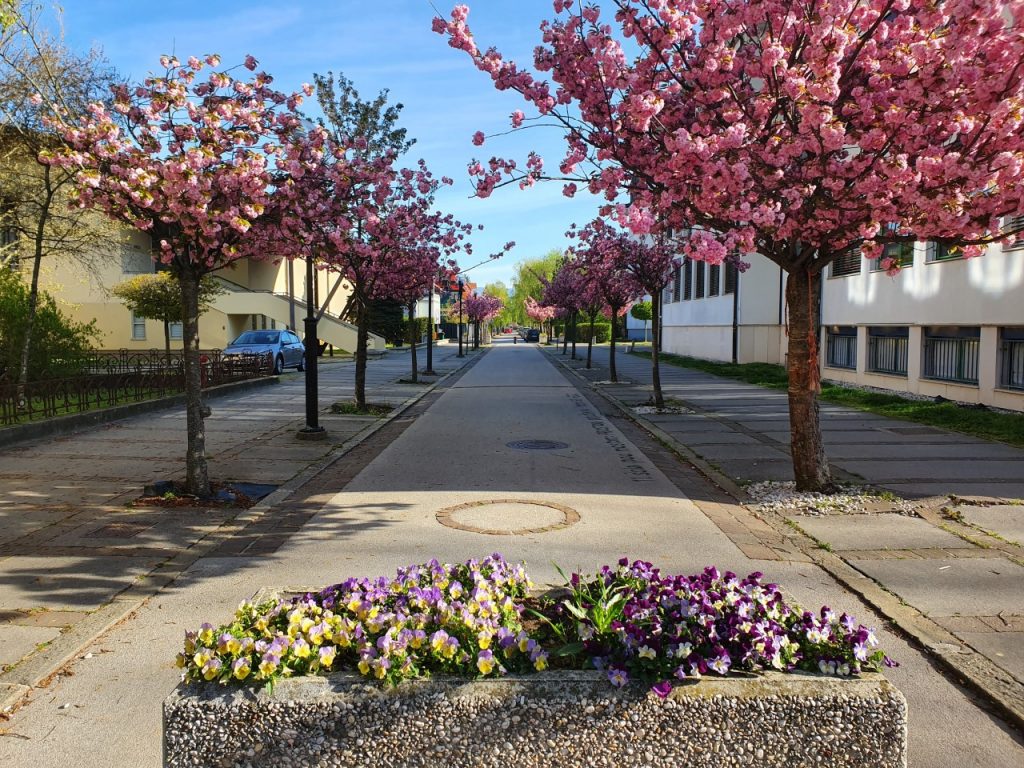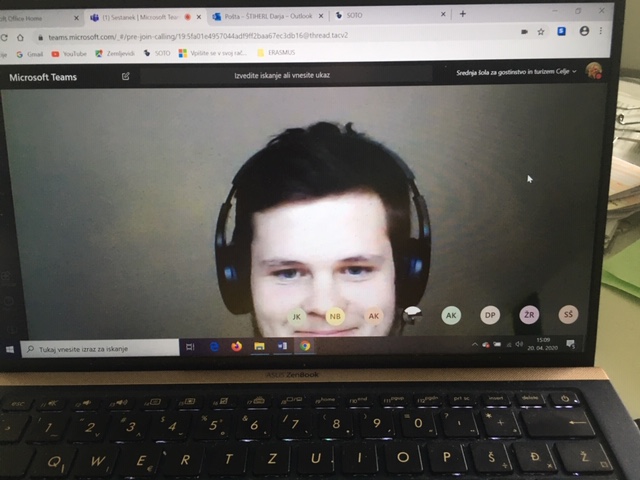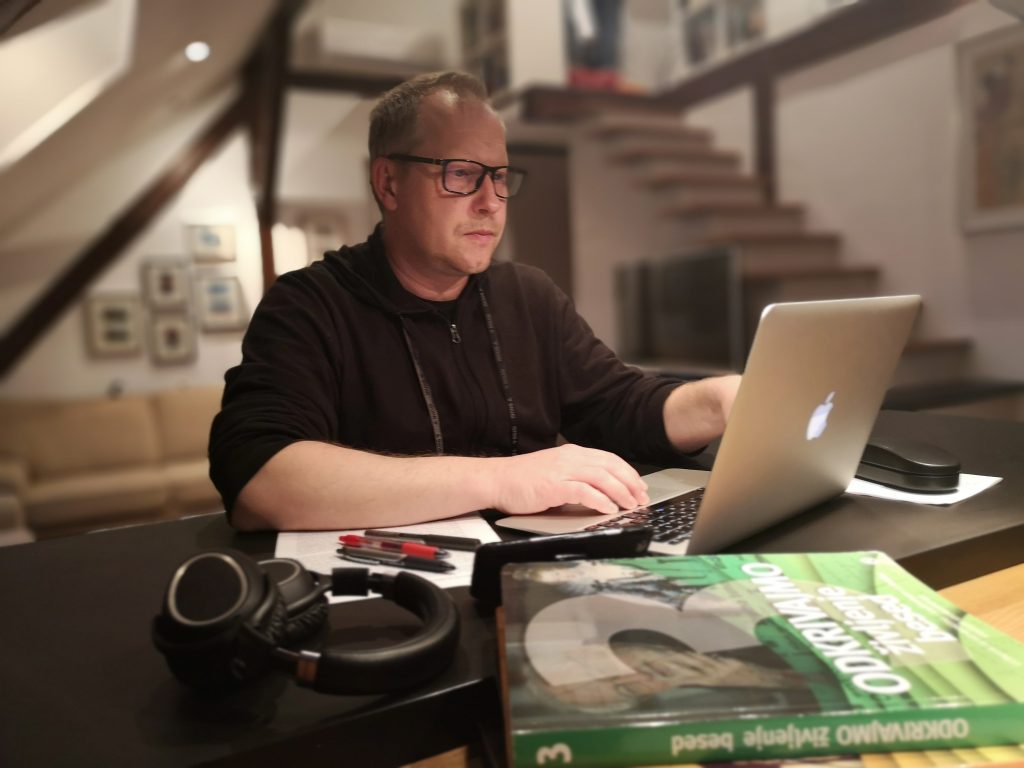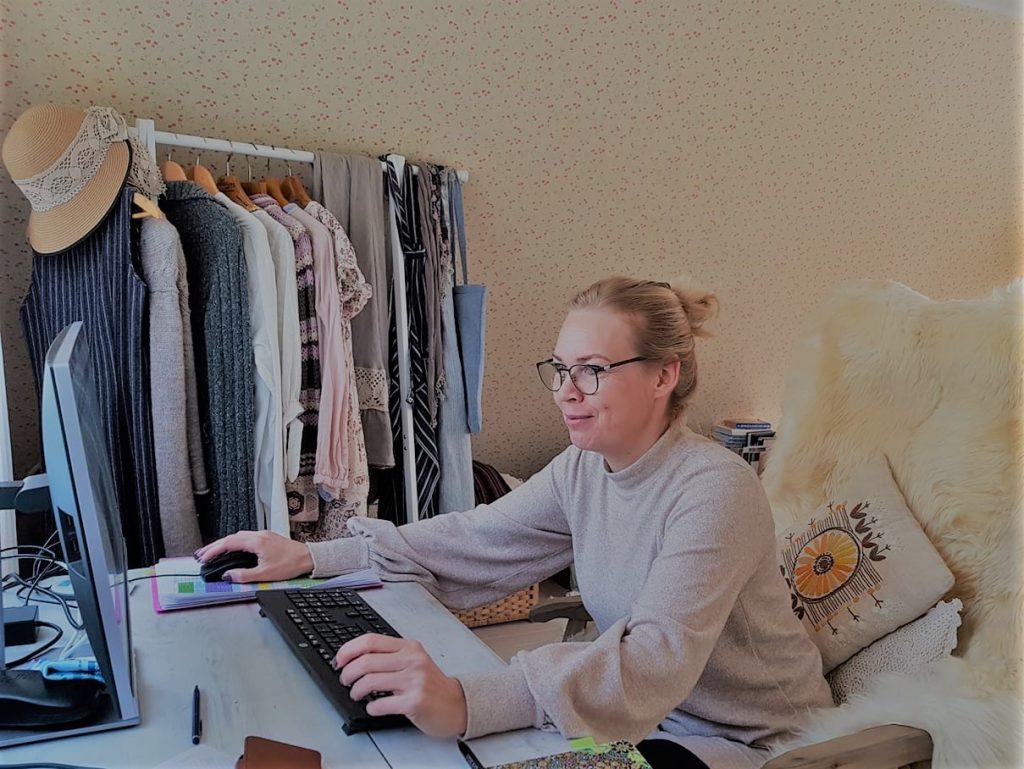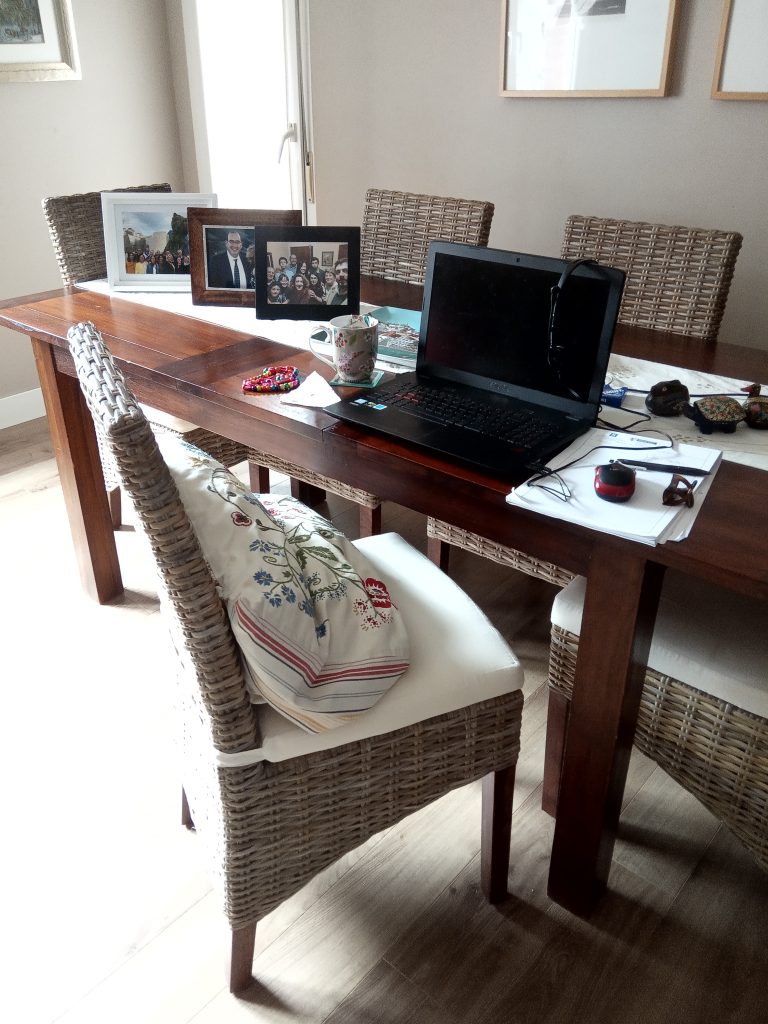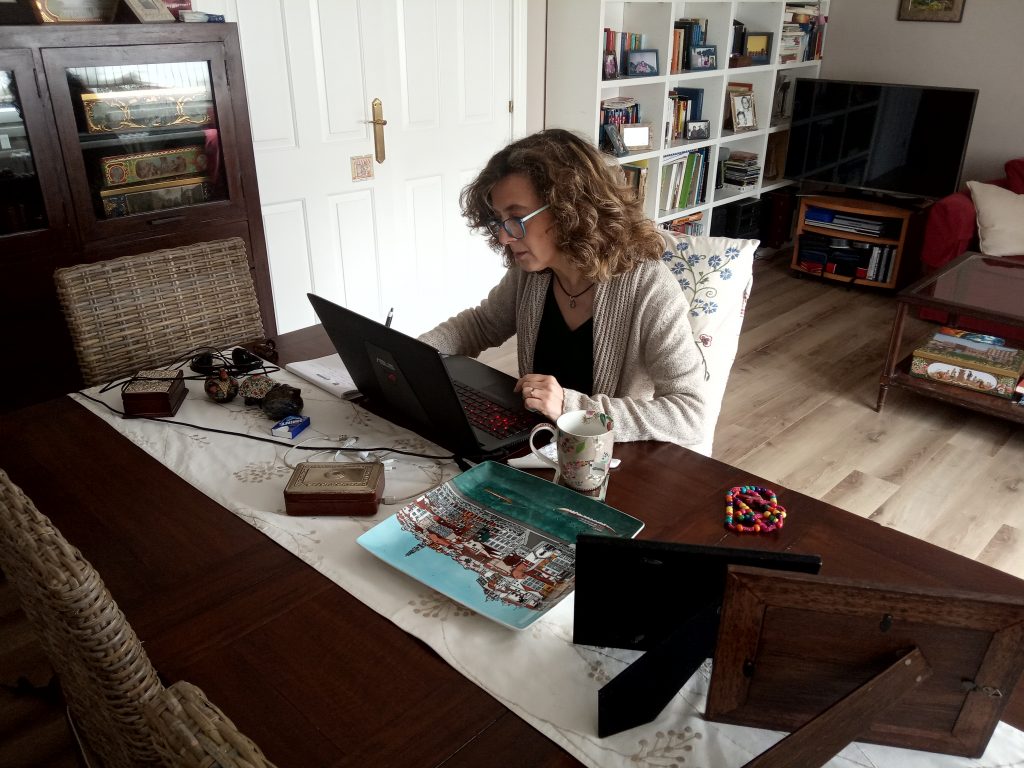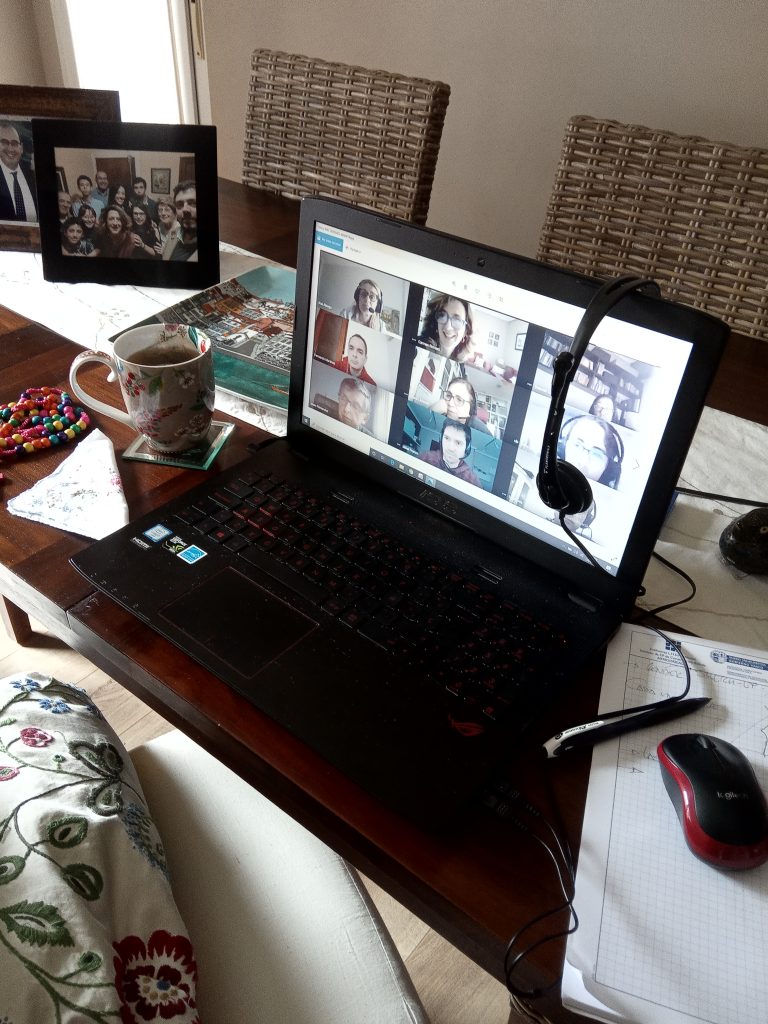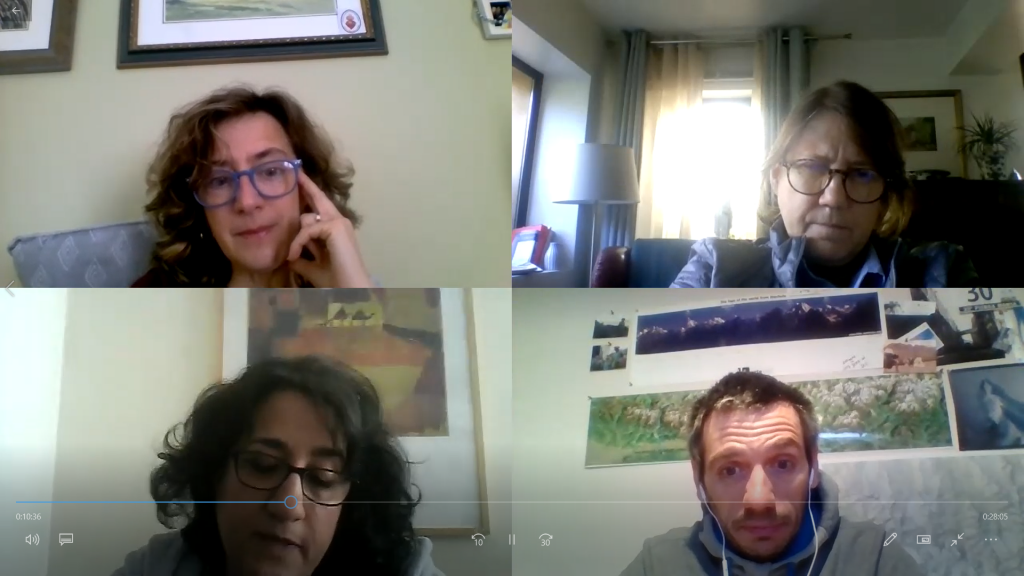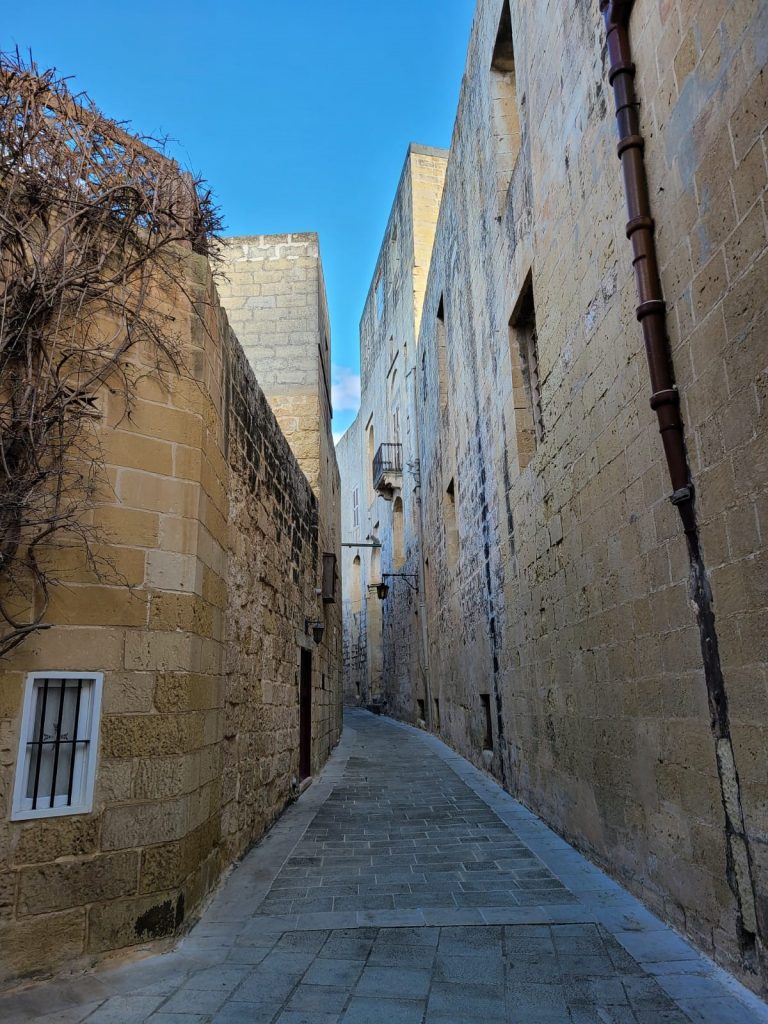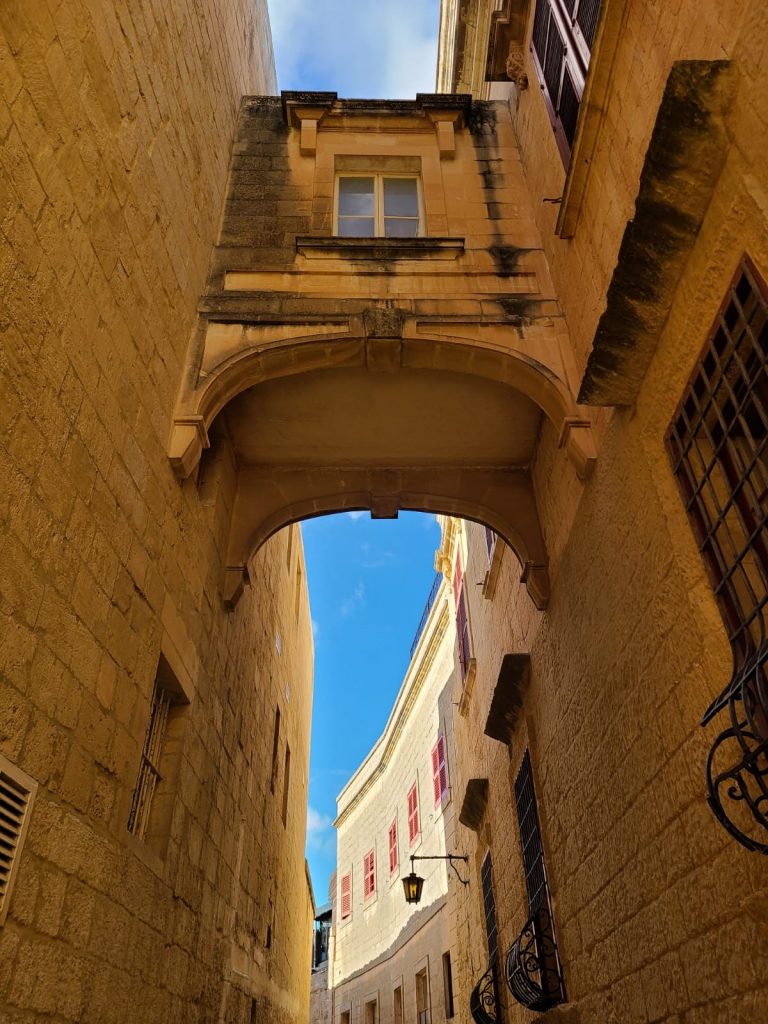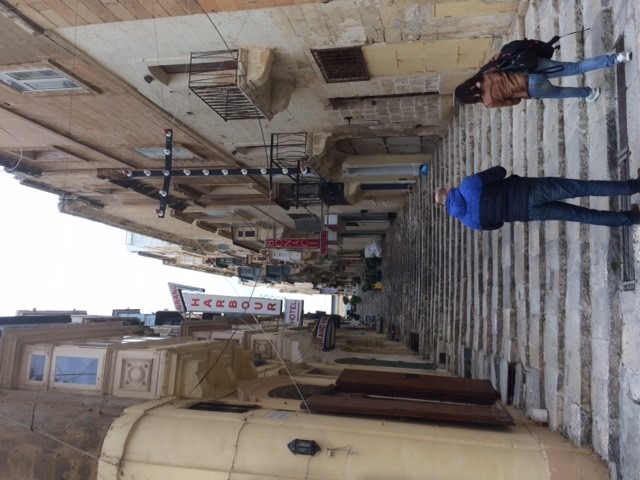Yli 30 gradialaista kokoontui tiistaina 19.5. Teamsin välityksellä jakamaan ajatuksiaan ja kokemuksiaan henkilöstövaihtoihin liittyen. Tilaisuudessa oli mukana myös Aarhus TECH -oppilaitoksen koordinaattori Flemming Olesen, joka on aiemmin tänä keväänä jakanut kokemuksiaan Gradian kv-blogin koronajuttusarjassa. Tilaisuuden pääteemat olivat kansainvälinen osaaminen ja vaihtojaksolle valmentautuminen.
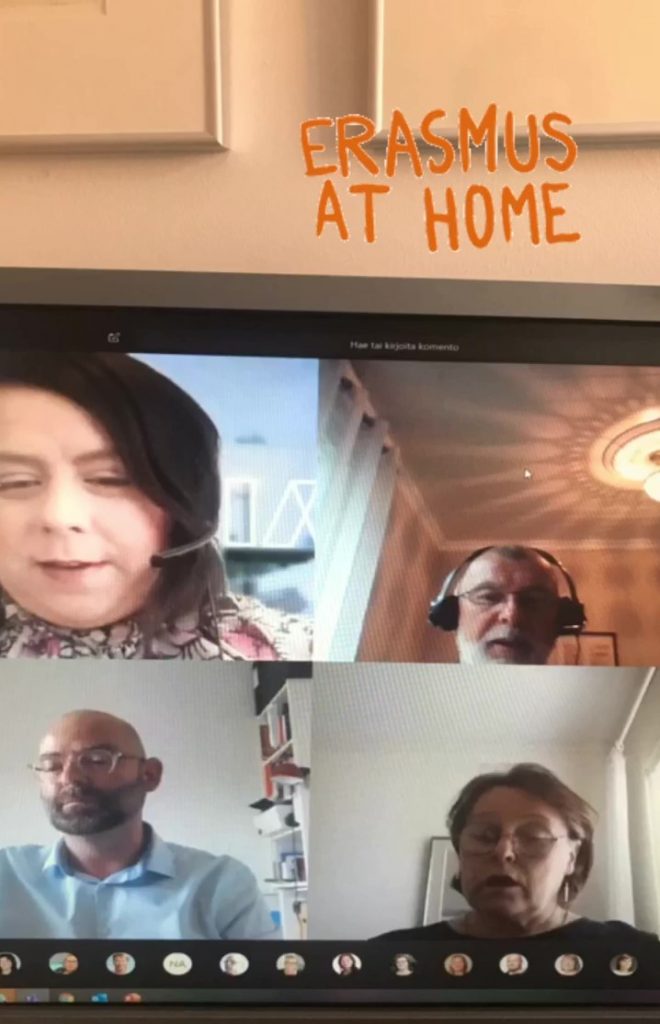
keskustelemassa kansainvälisestä osaamisesta ja keinoista, joilla sitä ovat hankkineet.
Sanomattakin lienee selvää, että Kiinassa vuoden alussa puhjennut COVID-19-tartuntatautiepidemialla on ollut suuri vaikutus erityisesti kansainväliseen toimintaan ja Erasmus+ ohjelman rahoittamiin kansainvälisiin liikkuvuuksiin ja hankkeisiin. Gradian osalta pandemia siirsi yhteensä noin 50 henkilöstövaihdon ja useamman hankkeen kokousten toteutusta eteenpäin tai verkkoympäristöön.
Vaikka matkat on peruttu, kansainvälinen yhteistyö jatkuu. Samalla kansainvälisyyden perinteiset mittarit, lähtevät ja saapuvat opiskelijat ja henkilöstö, painuvat nolliin. Nyt onkin hyvä pysähtyä ja pohtia ovatko mittarit riittäviä? Mitä muuta kansanvälisyys on kuin liikkuvuutta? Miten sitä osaamista, jota perinteisesti on haettu liikkuvuuden kautta, voidaan vahvistaa ja tukea myös ilman fyysistä matkustamista maasta toiseen ja millä mittareilla vaikutusta tulisi mitata? 19.5. tilaisuuden osallistujat pohtivat myös omalta osaltaan mitä kansainvälinen osaaminen on? Perinteisen kielitadon kehittämisen lisäksi tärkeiksi nousivat vuorovaikutus- ja verkostoitumistaidot. Myös kasvun ja kehittymisen ”moottorit” – rohkeus ja uteliaisuus – mainittiin useaan kertaan.
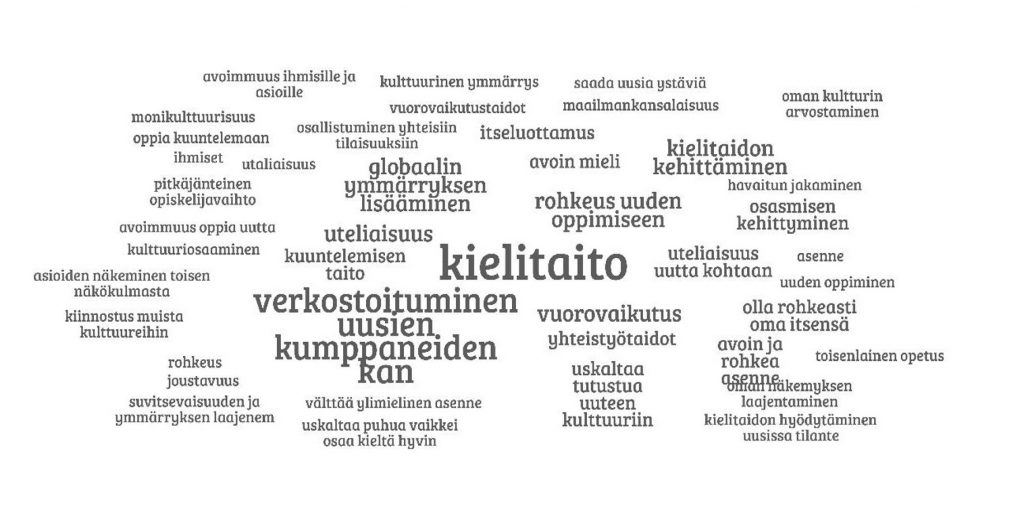
Liikkuvuus, matkustaminen toiseen maahan, pysyy jatkossakin tärkeänä osana osaamisen kehittämistä maailmassa, jossa keskinäiset riippuvuussuhteet ovat yhä selvemmin ja konkreettisemmin näkyvissä elämämme kaikilla osa-alueilla. Koulutuksen yksi tarkoitus on valmistaa elämään kulttuurisesti moninaisessa maailmanyhteisössä ja toimimaan rakentavasti ja vastuullisesti yhteisen maapallon hyväksi ja tämä kevät on osoittanut sen, että aivan kaikkia kokemuksia ei kuitenkaan voida kokonaan siirtää Teamsiin tai Zoomiin. Akuutin koronatilanteen jälkeen meidän on kuitenkin syytä jatkaa sen pohtimista mikä rooli matkustamisella on ja milloin se tuottaa juuri sitä lisäarvoa, jota tavoittelemme.
EU-komissio linjasi toukokuun lopussa, miten rahoitusohjelmien ulkomaanjaksoja voidaan toteuttaa loppuvuoden 2020 aikana, jos koronaepidemiasta johtuvat poikkeusolot jatkuvat. Linjauksen mukaan ulkomaanjaksot on mahdollista aloittaa virtuaalisesti verkkototeutuksina ja niitä voidaan jatkaa kohdemaassa sitten, kun tilanne sen sallii. Henkilöstövaihtoja voidaan toteuttaa jopa kokonaan virtuaalisesti, mikäli poikkeusolot jatkuvat. Tarkempia ohjeita virtuaalivaihtojen säännöistä ja rahoitusehdoista ei vielä ole. Seuraamme Gradiassa komission tiedotusta ja viestimme niistä heti, kun rahoitusohjelman ohjeet ja Gradian linjaukset tältä osin valmistuvat.
Huhtikuussa päättyneen henkilöstövaihtohaun valinnat ja ohjeet myös koronan alta siirtyvien vaihtojen osalta on julkaistu intrassa 29.5.2020. Kevään 2021 vaihtojen suunnittelu ja valmennus onkin syytä käynnistää pian kesälomakauden päätyttyä. Syksyn aikana pyritään useimpien kohdalla käynnistämään vaihtovalmennus mm. tutustumisella kohteeseen verkon välityksellä sekä tavoitteiden tarkemmalla määrittelyllä.
Vaihtokokemukset jakoon! -tilaisuudessa pohdittiin miten vaihtoon kannattaa valmistua ja missä asioissa osallistujat kaipaavat oman organisaation tukea. Apua kaivattiin mm. kielivalmennuksessa ja kohteeseen perehtymisessä.
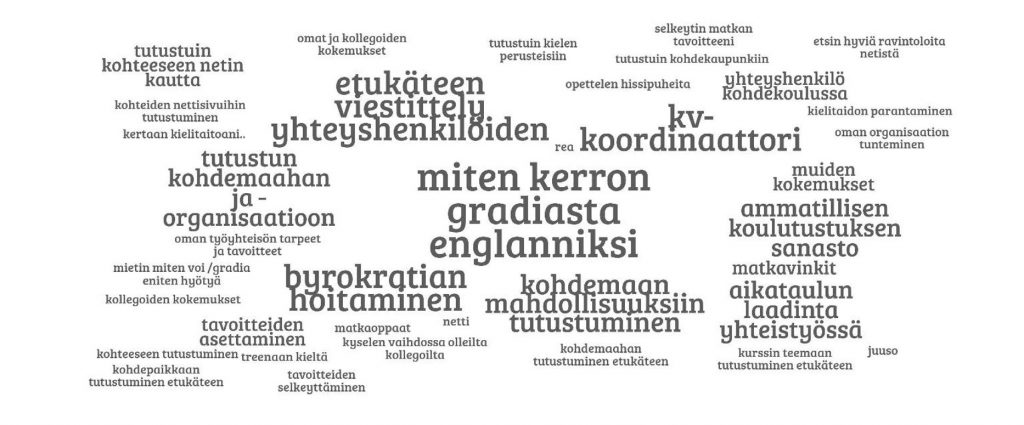
Tilaisuudesta kerätyn palautteen mukaan tämän tyyppiset tilaisuudet koettiin tärkeinä (yleisarvosana 4, maksimi 5). Kokemukset ja vinkit sekä rennot haastattelut olivat vastaajien mielestä parasta antia. Osa vastaajista toivoi, että jatkossa tilaisuudet päästäisiin pitämään lähikontaktissa ja että vuorovaikutteisuutta olisi enemmän. Ensimmäistä ei voida luvata. Jälkimmäinen sen sijaan kyllä jatkossa onnistuu paremmin. Seuraava vastaava tilaisuus järjestettäneen lokakuussa 2020. Seuraa siis intraa niin tiedät milloin ja mihin tulla!
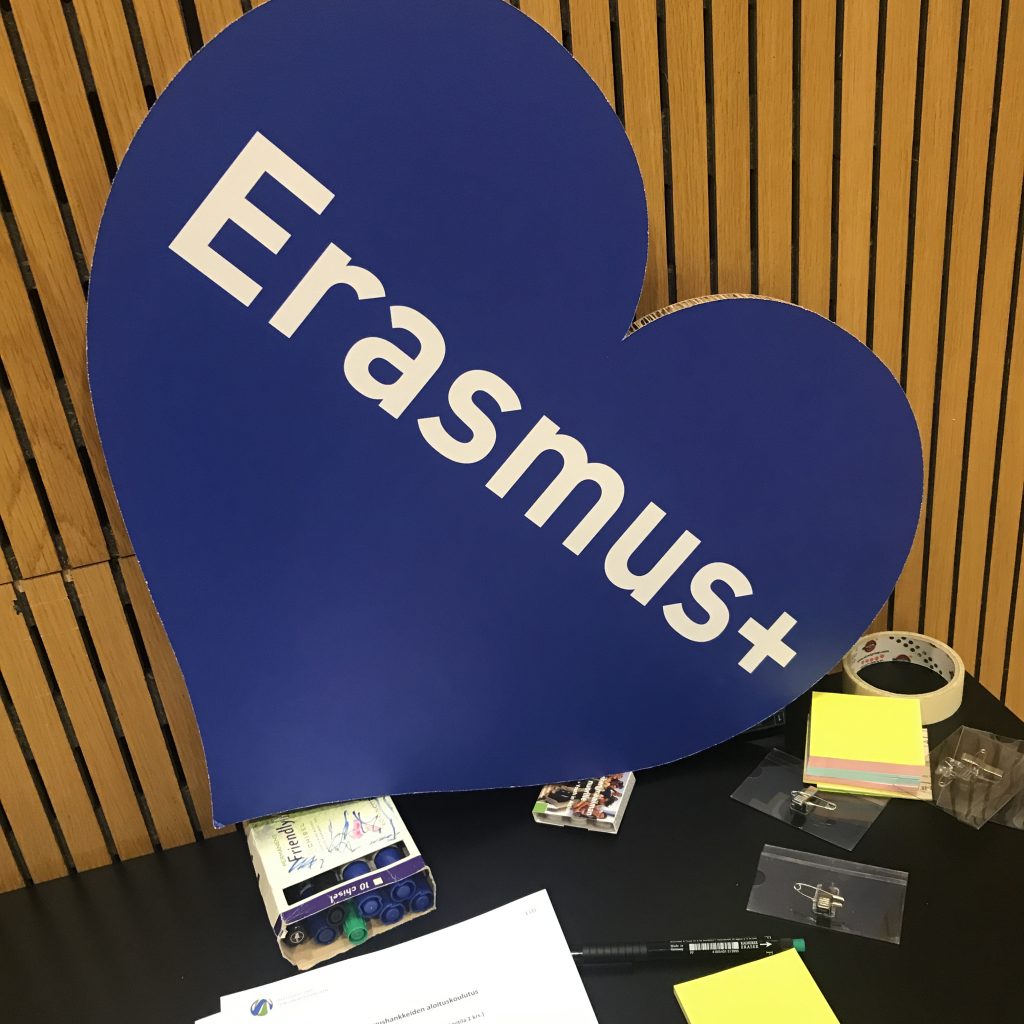
Rea Tuominen, kv-suunnittelija, p. 6159
